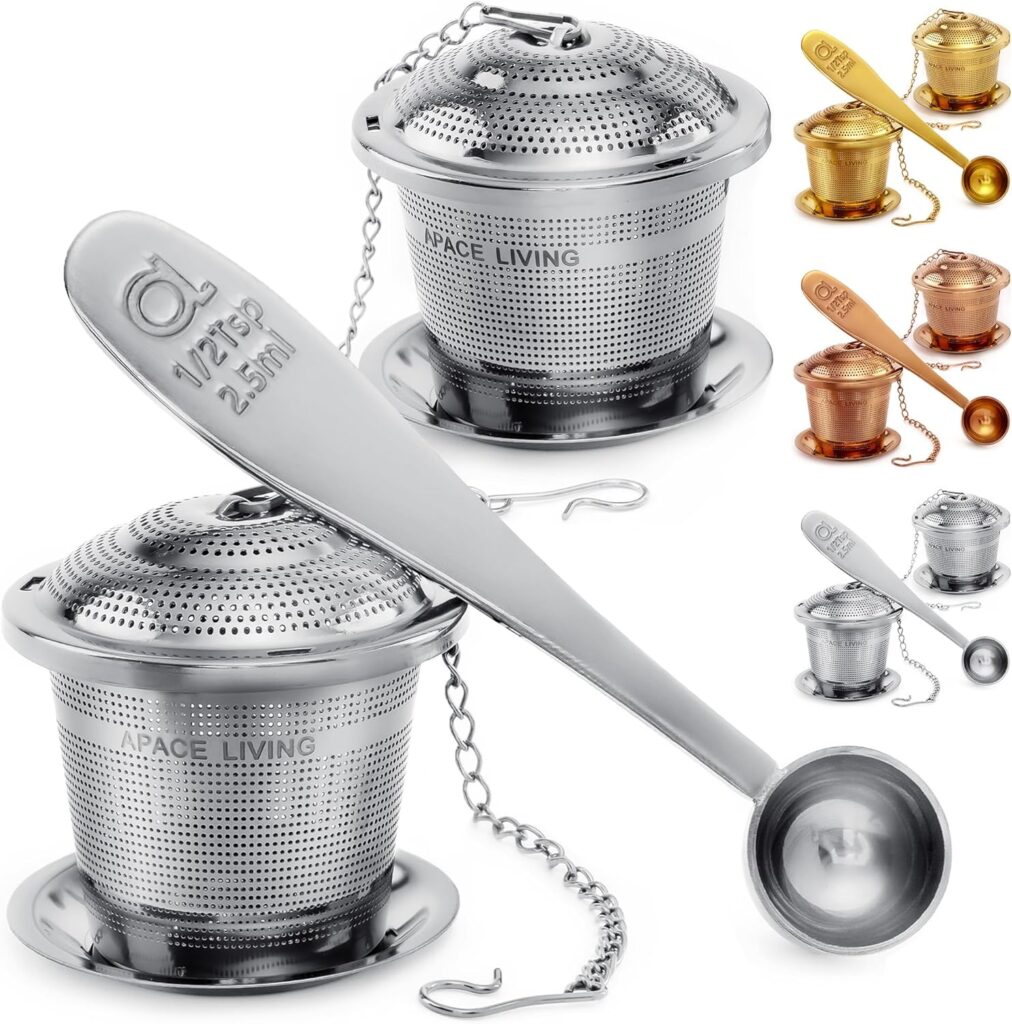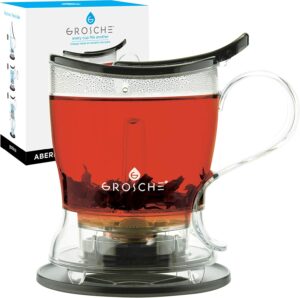Many seek how to get rid of constipation quickly to feel good again because the impact of constipation goes beyond just physical discomfort, as it can also affect a person’s mental and emotional well-being.
Herbal teas have been used for centuries as a natural remedy for digestive issues, including constipation.
This article looks at the various benefits of herbal teas for relieving constipation and provides a comprehensive overview of herbal teas as a remedy for this common digestive issue. You are in the right place, so read on!
Factors that Cause Constipation
Constipation is a digestive disorder that affects millions of people worldwide. It is a digestive disorder that occurs when a person experiences infrequent or difficult bowel movements.
There are many factors that can contribute to constipation, including a low-fiber diet, lack of physical activity, dehydration, certain medications, and medical conditions such as irritable bowel syndrome (IBS) and Parkinson’s disease.
The symptoms include infrequent bowel movements, difficulty passing stools, abdominal pain, bloating, and the feeling of an incomplete bowel movement.
Conventional treatments for constipation include over-the-counter laxatives, fiber supplements, and changes to diet and lifestyle.
However, for some people, these treatments may not be effective or suitable for their needs. That is where herbal teas come in as an alternative that provides gentle and natural relief for constipation.
In the next section, we will take a closer look at some of the most effective herbal teas for relieving constipation and how they can help improve digestive health.
Natural Relief for Constipation – Use Herbal Teas
Herbal teas have been used for centuries as a natural remedy for digestive issues, including constipation. With their natural ingredients and gentle properties, herbal teas offer a safe and effective way to soothe the digestive system, provide quick relief for constipation, and promote regular bowel movements.
From senna and peppermint to dandelion and fennel, there are a variety of herbal teas that can help alleviate the symptoms of constipation, inflammation, and promote overall digestive health.
Herbal teas work to relieve constipation by stimulating the digestive system and promoting regular bowel movements. Senna, for example, contains natural laxatives that help to soften stools and encourage bowel movements.
Peppermint tea has antispasmodic properties that can help to soothe abdominal pain and discomfort, while dandelion and fennel teas contain bitter compounds that help to stimulate the digestive system and promote regular bowel movements.
Note that while herbal teas can be a safe and effective remedy for constipation, they may not be suitable for everyone. Some people may experience side effects from using herbal teas, such as abdominal cramping or diarrhea.
Also, be mindful of the dose and frequency of use, as excessive use of some herbal teas can lead to dependence and other health issues.
It is therefore important to speak with a healthcare professional before incorporating herbal teas into your constipation treatment plan, to ensure that they are safe and suitable for your individual needs.

Natural Relief for Constipation – Top Herbal Teas
There are several herbal teas that are known to be effective in relieving constipation. Here are some of the top herbal teas that can help improve digestive health and alleviate the symptoms of constipation:
Senna – This is a well-known natural laxative that has been used for centuries to relieve constipation. Senna contains natural compounds that stimulate the muscles in the intestines and help to promote bowel movements.
Dandelion Root – This bitter herb has been traditionally used to improve digestive health and relieve constipation. It contains compounds that stimulate the digestive system and promote the production of bile, which is essential for the digestion of fats.
Fennel – Fennel is a fragrant herb that has been used for centuries to soothe digestive issues, including constipation. It contains compounds that help to relax the muscles in the digestive system and promote regular bowel movements.
Ginger – This spicy root has also been used for centuries to improve digestive health and relieve constipation. Ginger contains compounds that help to soothe abdominal pain and discomfort, while also promoting regular bowel movements.
Peppermint – Peppermint is a refreshing herb that improves digestive health and relieves constipation. It contains antispasmodic properties that help to soothe abdominal pain and discomfort, while also promoting regular bowel movements.
Licorice Root – Licorice root is a sweet herb that has been used for centuries to improve digestive health and relieve constipation. It contains compounds that help to soothe the digestive system and promote regular bowel movements.
Incorporating herbal teas into your diet can be a simple and effective way to relieve constipation and promote overall digestive health. Do not make a habit of drinking a cup of herbal tea after every meal as this dosage may be excessive.
However, it is important to speak with a healthcare professional before using these teas to relieve constipation, as some teas may not be suitable for everyone and may interact with certain medications.
How to Brew Herbal Teas for Quick Relief for Constipation
Brewing and drinking herbal teas for constipation can be a simple and effective way to improve digestive health and relieve symptoms. Loose herbal teas are best and it is preferable to use a tea infuser or strainer rather than a teapot. These are quite inexpensive to buy.
Follow this step-by-step guide to brew herbal teas for natural relief for constipation:
- Boil water in a pot or kettle.
- Place the recommended amount of herbal tea in a tea infuser or strainer.
- Pour the boiling water over the tea and let it steep for 5 to 10 minutes. This is an important step because failure to let the tea steep will result in a watery tea which will not provide the benefits being sought.
- Remove the tea infuser.
- Pour the tea into a cup
- Add honey or lemon to taste if you find the unsweetened tea distasteful.
- Discard the tea leaves if a strainer was used.
Dosage and Frequency of Drinking Herbal Teas for Constipation
The recommended dosage and frequency of drinking herbal teas for constipation can vary depending on the type of tea and individual needs.
It is important to follow the recommended guidelines on the tea packaging or speak with a healthcare professional for personalized recommendations. In general, it is recommended to drink herbal teas for constipation no more than 2 to 3 times per day to guard against a runny stomach.
Precautions for Natural Relief for Constipation
While herbal teas can be a safe and effective remedy for constipation, you need to be mindful of certain precautions because they may not be suitable for everyone and may interact with certain medications.
Also note the dose and frequency of use, as excessive use of some herbal teas can lead to over dependence and other health issues.
If you are pregnant, breastfeeding, or have any pre-existing health conditions, it is especially important to speak with a healthcare professional before incorporating herbal teas into your constipation treatment plan.
Conclusion – How to Get Rid of Constipation
Herbal teas can be a natural and effective solution for relieving constipation and promoting overall digestive health. With ingredients like fennel, ginger, peppermint and senna, these teas promote digestion, relieve bloating, and stimulate bowel movements.
By following the steps for brewing and drinking herbal teas, and being mindful of the recommended dosage and frequency, you can safely and effectively incorporate herbal teas into your constipation treatment plan.
Keep in mind that herbal teas should not be used as a sole treatment for constipation and should always be consumed in moderation.
In some cases, they may interact with other medications, so it’s always best to consult with a healthcare professional before incorporating these teas into your routine.
So, if you are looking for natural relief for constipation which is also effective , consider exploring the world of herbal teas today!
Related Articles
- How to Stay Hydrated When You Hate Water – Is it Possible?
- Causes of Leg Cramps at Night – How to Stop Them
- Why Proper Hydration is Important Especially in Hot Weather
- Why Is Water Important to Your Health? – Facts To Know
- 10 Common Causes of Stomach Bloating And How to Relieve Them
References
9 Herbs and Spices That Fight Inflammation. (2021, January 25). Retrieved from Healthline website: https://www.healthline.com/nutrition/anti-inflammatory-herbs#1.-Ginger
Turmeric Benefits. (2022, December 15). Retrieved March 4, 2023, from www.hopkinsmedicine.org website: https://www.hopkinsmedicine.org/health/wellness-and-prevention/turmeric-benefits#:~:text=Brown%20explains%20that%20the%20active



